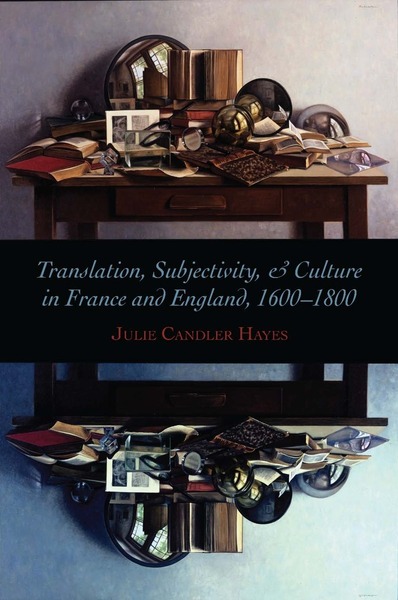By Julie Candler Hayes (NHC Fellow, 2004–05)

Stanford, CA: Stanford University Press, 2009
From the publisher’s description:
Translation, Subjectivity, and Culture examines the evolution of neoclassical translation theory from its origins among the first generation of French Academicians to its subsequent importation to England by royalist exiles, its development under the influence of such translator-critics as John Dryden and Anne Dacier, and its evolution in response to the philosophical and political ideas of the Enlightenment. Hayes shows how translators working from a range of literary, political, and philosophical viewpoints speak to such issues as the relationship of past to present, authorship and the status of women writers, the role of language in national identity, and Anglo-French intellectual exchange. Responding to recent translation historians who describe neoclassical translation as ethnocentric, she uncovers within these translators' projects not only openness to cultural others but constant and multiple reformulations of the very concept of otherness. Her book is a sustained reflection on the aims and methods of contemporary translation studies and the most complete account available of the role of translation during a critical period in European history.
Subjects
Literature / Literary Theory / History of Literature / Neoclassicism / Translation Studies /Hayes, Julie Candler (NHC Fellow, 2004–05). Translation, Subjectivity, and Culture in France and England, 1600-1800. Stanford, CA: Stanford University Press, 2009.